Point Blank
Buhari and NLNG tax evasion fraud: Can we be serious for once?
Published
10 years agoon
By
Olu Emmanuel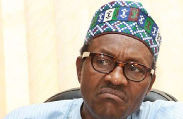
IT was at his maiden presidential media chat of Wednesday December 30th 2015, that President Muhammadu Buhari said he will launch fresh inquiry to know the present status of the feud between the Nigeria Liquefied Natural Gas (NLNG) and Nigerian Maritime Administration and Safety Agency (NIMASA) over alleged failure of the natural gas development company to pay some statutory dues to the federal government.
This dispute between NIMASA and NLNG actually started as a result of perceived conflicts in the enabling Acts establishing both organizations- The Nigeria LNG (Fiscal Incentives, Guarantees and Assurances) Act on one hand and the NIMASA Act; Merchant Shipping Act; and Coastal and Inland Shipping Act on the other. So a careful look at the relevant sections of the various laws setting up the two organisations therefore becomes imperative in understanding the source of the disagreement.
The NLNG (fiscal incentives, guarantees and assurances) Act gave a pioneer status to the Company and section 2 gave it a tax relief period of 10 years. As stated, “Notwithstanding the provisions of section 10 of the Industrial Development (Income Tax Relief) Act, the tax relief period of the company shall commence on the production day of the company and shall continue for a period of 10 year. However, the tax relief period shall terminate when the cumulative average sales price of liquefied natural gas reaches $3 per Million Metric British Thermal Units as calculated in the First Schedule to this Act in accordance with which such calculation shall only be made annually at each anniversary date.”
The NLNG Act also states that: “Without prejudice to any other provision contained herein, neither the Company nor its shareholders in their capacity as shareholders in the Company, shall in any way be subject to new laws, regulations, taxes, duties, imposts or charges of whatever nature which are not applicable generally to companies incorporated in Nigeria or to shareholders in companies incorporated in Nigeria, respectively.
For NIMASA, the Act establishing it- The NIMASA Act 17 of 2007 merged the National Maritime Authority and the Joint Maritime Labour Industrial Council (JOMALIC). Section 2 (1) of the Act states that: “This Act shall apply to ships, small ships and crafts registered in Nigeria and extend to ships, small ships and crafts flying a foreign flag in the exclusive economic zone, territorial and inland seas, inland waterways and in the ports of the Federal Republic of Nigeria. But it further said that, “This Act does not extend to warships and military patrol ships”, which are the only ships exempted from NIMASA’s jurisdiction.
Meanwhile, on the funding of NIMASA, the Act provides that the organisation “Shall be funded by monies accruing to it from 3 per cent of gross freight on all international inbound and outbound cargo from ships or shipping companies operating in Nigeria among others.
The Coastal and Inland Shipping (Cabotage) Act 2003, created the Cabotage Vessel Financing Fund (CVFF) to promote the development of indigenous ship acquisition capacity by providing financial assistance to Nigerian operators in the domestic coastal shipping. This Fund, according to the Act, shall be funded by a surcharge of 2 per cent of the contract sum performed by any vessel engaged in the coastal trade.
It would be recalled that NIMASA had in 2013 taken the management of the NLNG to court following arguments over whether or not the latter ought to pay 2 percent cabotage and 3 percent freight levies for shipping by Bonny Gas Limited, a subsidiary of NLNG, estimated at over $400million to NIMASA from September 2013.
The NLNG’s argument was that the (Fiscal Incentives, Guarantees and Assurances) Act of 2004 Laws of the Federation, exempted the company from the payment of taxes to the government of Nigeria for a period of 10 years or till the achievement of a certain minimum threshold in the price of gas. NLNG also relied on a paragraph in the Second Schedule of its Enabling Act which exempts it from being bound by any new laws, regulations, taxes, imposts or charges of whatever nature.
Now, these are the issues: Indisputably, The NLNG Act exempted the organisation from paying taxes and levies as an incentive for the investment of the NLNG shareholders for a period of 10 years or when the cumulative average sales price of the liquefied natural gas reaches $3 per Million Metric British Thermal Units (MMBTU) as calculated in the first schedule to the NLNG Act whichever is earlier.
It is very crucial to put this matter in proper perspective for the new government as it grossly borders on huge loss, whether by deliberate design or covert omission, of deserved revenues to the Federal Government. The question now should be: when did the NLNG commenced paying taxes and other dues/levies to the Federal Government of Nigeria? Did the company honestly follow the stipulations of the Act establishing it especially as concerns the grace period and/or established output milestone?
As expected, the NLNG admitted that it started paying tax to the Federal Inland Revenue Services since 2009 the said 10 year exemption period expired.
If only some of these foreign operators in this country would come to terms that the prevailing business environment is no longer the same with what obtained when they did what they liked in the days of Oloibiri and Ogoni and fed us with all sorts of lies to confuse our government more, they would be more careful in the manner they conduct their businesses locally here.
According to oil and gas market intelligence that is readily accessible by anybody who cares, as at January 2004, which was the fifth anniversary of the production of the NLNG, the New York Mercantile Exchange (NYMEX) indicated that the price of the resource stood at $9 per MMBTU, meaning that, the milestone for the expiration/nullification of the exemption period had been surpassed by 200 per cent in the cumulative average sales price as at 2004.
Good that the information did not come from Nigeria, can the NLNG dispute this NYMEX market intelligence?
Pathetically, NLNG is a limited liability company incorporated in Nigeria and owned by four shareholders with majority shareholding by foreign entities. The Federal Government is represented by the Nigerian National Petroleum Corporation (NNPC) and has 49 per cent share. Shell Gas BV has 25.6 per cent, Total LNG Nigeria Limited owns 15 per cent and ENI Int’l has 10.4 per cent.
Between 2004 and 2009, NLNG continued to enjoy tax- free operations and this was despite the presence of NNPC, which represents the nation in the shareholders’ board. How do you explain that prominent Nigerians entrusted to represent our collective interest sat docilely and watch foreign operators of the NLNG adducing flimsy rob the nation of its entitlements?
So if as openly admitted by NLNG that the company started paying tax to the Federal Government in 2009 when in actually fact it achieved and surpassed by 200 percent the milestone even before 2004, why did the company not commence the payment in 2004 or even earlier when it hit and surpassed the milestone benchmarked price of $3 per MMBTU?
What happened to the more than five year gap (2004-2009) that the Nigerian government was denied legitimate revenue from the organisation? And how has the NLNG been paying the dues since 2009 till date? Are there still some levies the company still feels it is still exempted from paying?
As President Buhari has garnered the will-power to launch an enquiry into the dispute, we should first ascertain the amount NLNG was expected to pay the federal government during the period under dispute (2004-2009). Also we need to establish whether the gas company has been paying the taxes as due since its confrontation with NIMASA (2013-date).
These are some of the issues the President should probe in his renewed interest in the tax evasion feud. It is not enough for the NLNG to casually throw figures at government. We have to ascertain whether are they are actually “saying what they pay” or they are “paying what they say.” In essence what the NLNG say it paid, is that what they should pay? We need to find out and this should not be a witch hunt exercise but a mission to correct the fraud of the past administrations.
(IFEANYI IZEZE lives in Abuja: [email protected]; 234-8033043009)
You may like
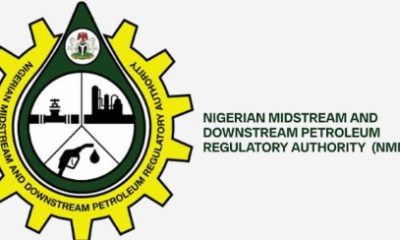

NMDPRA – Nigerians spend N1.3tn on petrol in June amid soaring energy costs
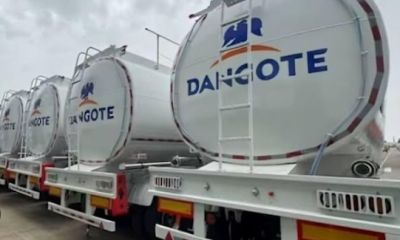

NOGASA urges government intervention as Dangote refinery’s direct supply plan sparks industry fears
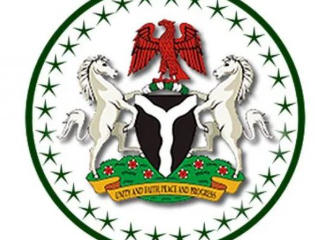

FG defends borrowing plan, claims 10 states involved
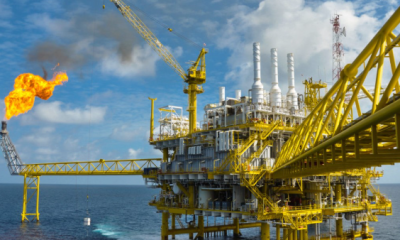

Nigeria sheds Top importer status as Dangote refinery transforms Africa’s fuel market
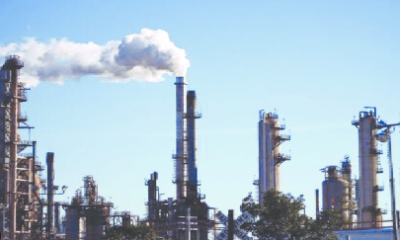

Kaduna women protest alleged KRPC chemical pollution, Demand action


NNPC Foundation donates 25,000 STEM textbooks and mini libraries to 25 secondary schools
Trending

 Football7 days ago
Football7 days agoNFF dismisses claims of DR Congo’s World Cup qualifying disqualification

 Entertainment6 days ago
Entertainment6 days agoSinger Simi sparks debate after calling for death penalty for rapists

 Football1 week ago
Football1 week agoCAF set for quarter-final draws in Cairo as road to continental finals takes shape

 Business5 days ago
Business5 days agoNaira mixed across markets as official window dips, parallel market strengthens

 Football6 days ago
Football6 days agoGalatasaray thrash Juventus 5–2 to hand Spalletti first champions League defeat

 Football1 week ago
Football1 week agoPardew praises Arteta’s four-competition charge, backs Liverpool for Champions League triumph

 Business6 days ago
Business6 days agoNaira hits N1,337 against Dollar amid positive market sentiment

 Crime7 days ago
Crime7 days agoSouth African Court charges three over murder of Nigerian e-hailing driver in Pretoria

